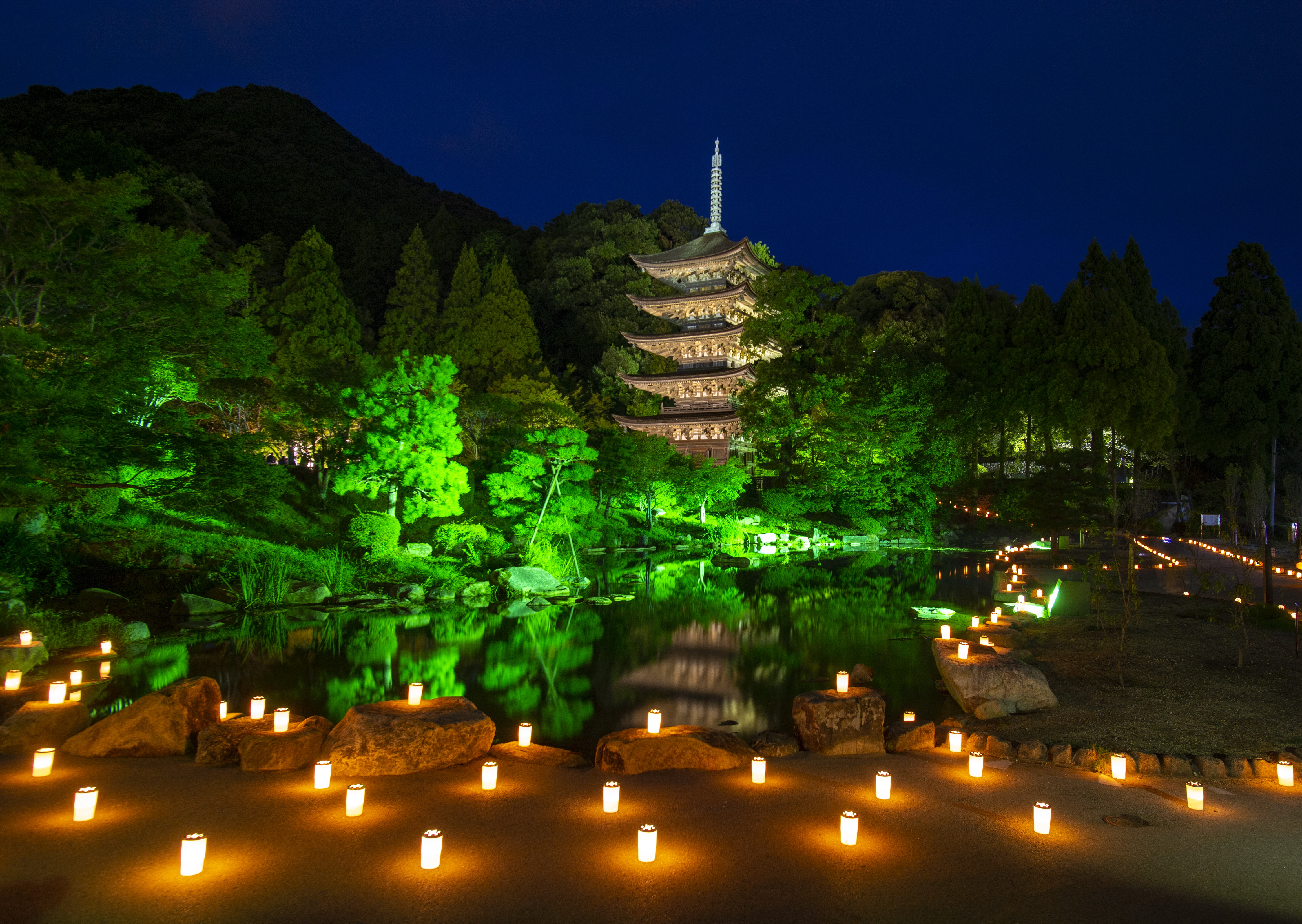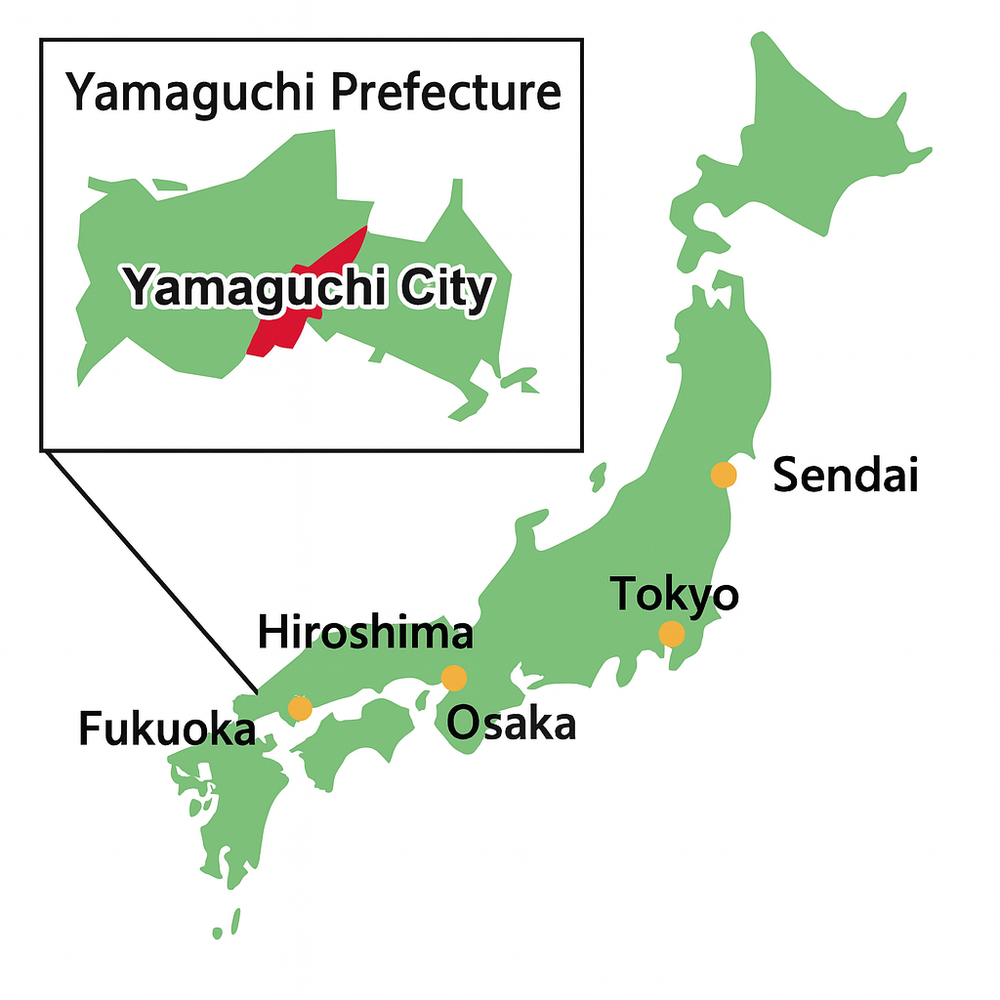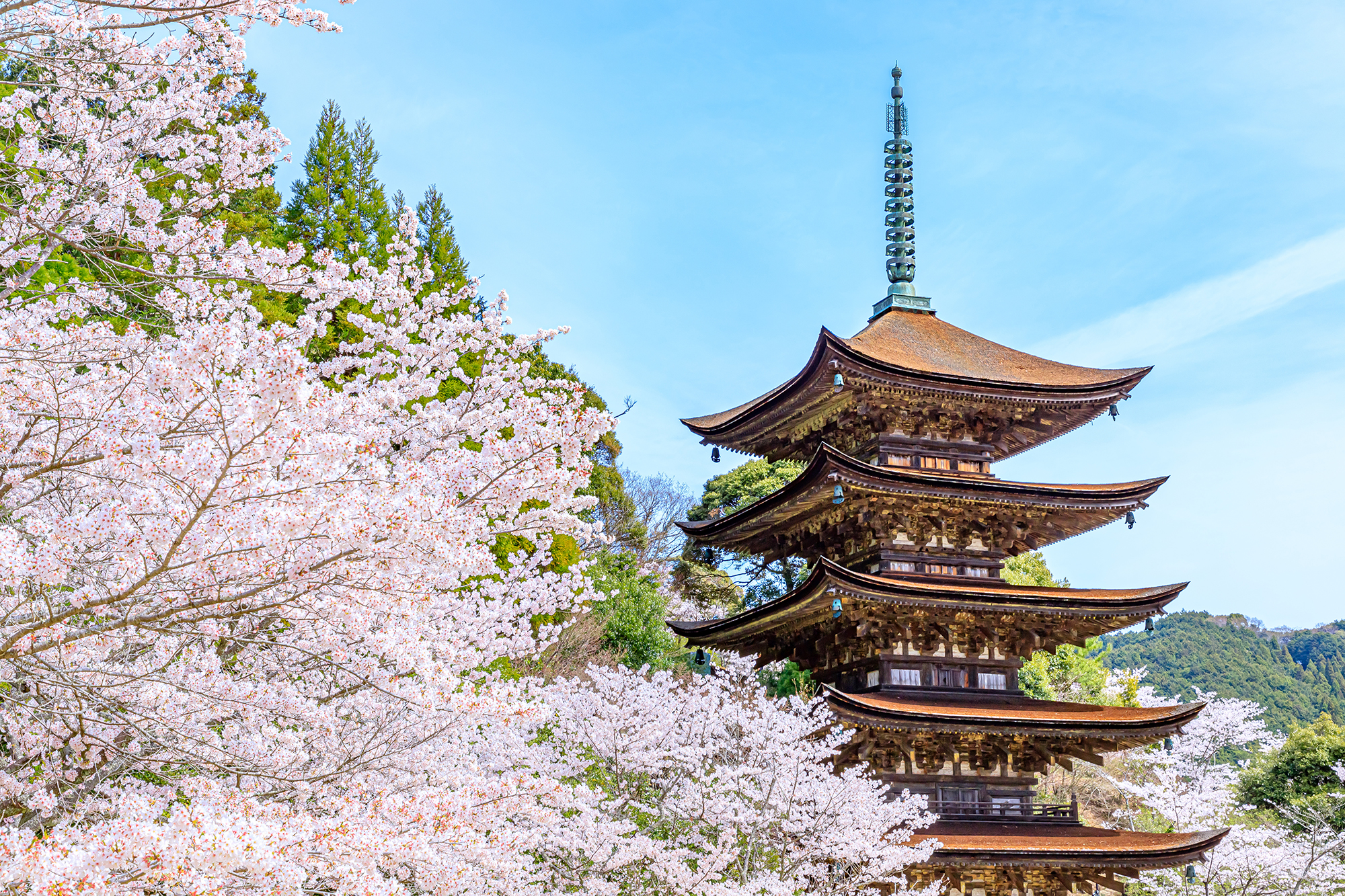
A Hidden Gem in Western Japan
Yamaguchi City – A Must-Visit Destination by The New York Times
Why Yamaguchi City is Japan’s Next Must-Visit Destination
One of the city’s greatest charms is that it remains largely undiscovered by international tourists. Unlike Japan’s more popular spots, you won’t find long lines or overcrowded attractions here. This makes Yamaguchi the perfect place for travelers seeking a more relaxed and immersive experience.

What Makes Yamaguchi Unique
From historical landmarks and serene temples to natural hot springs and scenic walking trails, Yamaguchi City blends tradition, nature, and local culture seamlessly. Its recognition by a major publication like The New York Times not only highlights its growing international appeal but also reassures visitors that they are exploring a destination with unique, memorable experiences waiting to be discovered.
Unforgettable Experiences in Yamaguchi City
Rurikoji Temple and its iconic five-story pagoda
Rurikoji Temple is the cultural heart of Yamaguchi, famous for its graceful five-story pagoda, considered one of Japan’s most beautiful. Built in the 15th century, the structure is surrounded by a tranquil garden that changes with the seasons—cherry blossoms in spring, fiery maples in autumn, and snow in winter. The pagoda is not just an architectural marvel but also a symbol of peace and harmony. Unlike more famous temples in Kyoto or Nara, Rurikoji remains calm and uncrowded, allowing visitors to enjoy its quiet beauty and reflect on centuries of Japanese tradition.

Hike along the historic Hagi-Okan trail
The Hagi-Okan trail is a beautifully preserved path that once connected the castle town of Hagi with the inland city of Yamaguchi. Walking along the moss-covered stones, you’ll feel as though you’ve stepped back into samurai times. The trail is dotted with historic markers and shaded by towering cedars, making it a peaceful escape from busy city life. Unlike crowded tourist routes, the Hagi-Okan offers a chance to enjoy nature and history at your own pace, while experiencing a side of Japan that few international visitors ever discover.

Relax and unwind in the soothing waters of Yuda Onsen
No visit to Yamaguchi City is complete without soaking in the hot springs of Yuda Onsen. Known for its smooth, skin-friendly waters, this historic spa town has welcomed travelers for centuries. Bathing here is more than relaxation—it’s a cultural experience, rooted in Japan’s belief in the healing power of natural springs. After exploring trails and temples, slipping into a steaming outdoor bath is pure bliss. The town also offers charming ryokan inns and local cuisine, making it an ideal place to slow down, recharge, and experience the warm hospitality of Japan.

Waterfall meditation ritual (Taki-gyō) for mind and spirit
Taki-gyō, or waterfall meditation, is a unique spiritual practice that combines nature and mindfulness. In Yamaguchi, visitors can participate in this rare experience by standing beneath a cascading waterfall, letting the cold water wash away stress while focusing on the breath. Traditionally practiced by monks as a form of discipline, it has become a way for modern travelers to reconnect with themselves. It’s not just meditation—it’s a powerful sensory encounter that leaves you refreshed, grounded, and renewed. Far from tourist clichés, this is a truly unforgettable way to experience Japan.

Practical Travel Tips for Exploring Yamaguchi
Best seasons to visit
Yamaguchi City is a year-round destination, but spring and autumn stand out. Cherry blossoms paint the city pink in March and April, while October and November bring brilliant autumn leaves around Rurikoji Temple and the mountains. Summer is lively with festivals and firework displays, though hot and humid. Winter offers quiet charm, especially with snowy views of the five-story pagoda. Each season adds its own character, so the best time really depends on whether you prefer vibrant energy, colorful scenery, or peaceful atmospheres.

How to access Yamaguchi City
Reaching Yamaguchi City is easier than many expect. From Tokyo, travelers can take the Shinkansen (bullet train) to Shin-Yamaguchi Station in about five hours, or fly to Yamaguchi Ube Airport in under two hours. From there, local trains or buses connect to the city center in around 30 minutes. Visitors coming from Hiroshima or Fukuoka will find it even more convenient—just about 90 minutes by train. This accessibility makes Yamaguchi an excellent stop on longer Japan itineraries, especially for travelers seeking authentic, less-crowded experiences.

Combining Yamaguchi with nearby destinations
Yamaguchi City pairs beautifully with other nearby destinations. Hiroshima is just a short train ride away, perfect for combining history and culture. To the north lies Hagi, a former castle town with samurai-era charm, while to the west, Shimonoseki offers famous seafood markets and scenic coastal views. With so many options close by, Yamaguchi City can serve as a central hub for exploring western Japan, balancing hidden gems with more familiar highlights.


















